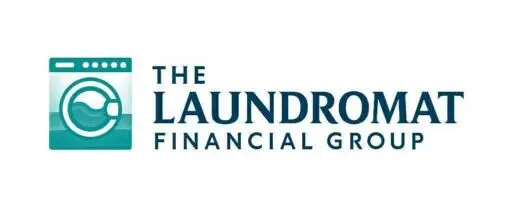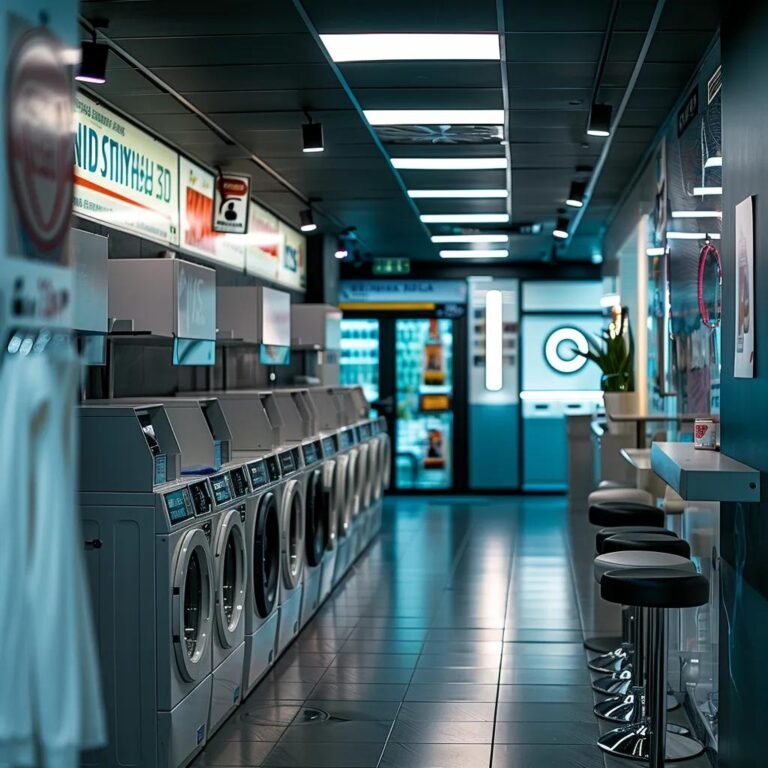How to Start a Laundromat: State-by-State Guide for Success
State-by-State Guide: How to Find Laundromats for Sale Near You
This guide provides entrepreneurs and business owners with essential insights into locating, evaluating, and purchasing laundromats within their state. It addresses challenges such as finding verified listings, understanding state-specific regulations, and assessing profitability. The guide also offers practical advice on working with brokers, analyzing financial returns, and managing operations post-purchase. By using expert insights and proven financial tools, readers can navigate the laundromat market, prequalify potential buyers, and maximize return on investment.
Transitioning from the introduction, the following sections present state-by-state strategies, regulatory insights, profitability evaluations, and financing options critical for a successful acquisition and operation of a laundromat business.
How Can You Find Laundromats for Sale in Your State?
A successful search for laundromats begins online and via local contacts. Start by checking dedicated commercial real estate and business-for-sale websites that offer detailed profiles with financial data, photos, and performance indicators. Additionally, local business websites and newspapers often list smaller, privately sold operations.
Utilize platforms that specialize in commercial properties to ensure every listing is vetted. These sites offer user reviews, historical performance data, and advanced filters by city, state, revenue, and operational capacity. Directories and auction sites can provide insights into off-market opportunities and distressed sales.
Networking with local brokers and real estate agents is invaluable. Brokers often have access to listings before they are made public and can share insights on owner motivations and profitability trends. Local business groups or trade associations can also yield useful recommendations.
Below is a table summarizing various sources for finding laundromats:
| Source Type | Key Features | Data Provided | Accessibility | Example Platform |
|---|---|---|---|---|
| Online Business Listings | Verified listings, filtering, and reviews | Revenue, location, sale price | High – nationwide | BizBuySell, BizQuest |
| Commercial Real Estate Sites | Detailed property data and zoning info | Property size, lease details | Moderate – regional | LoopNet, CoStar |
| Classified Ads | Direct seller contact, local focus | Basic financials, photos | High – local ads | Craigslist, Local Ads |
| Broker Networks | Insider information and early listings | Deal history, owner details | High – by appointment | Local brokers |
| Auction Platforms | Distressed sales with lower competition | Asset performance, bidding info | Variable – event-based | Auction.com, GovDeals |
Where to Search for Verified Laundromat Listings in [State]
In every state, it is vital to rely on verified listings from sites specializing in commercial business sales. These portals validate entries with financial audits and background checks. Look for state-specific portals that curate listings based on local market conditions and note key data points like annual revenue, profit margins, equipment condition, and lease terms.
For example, in Texas, filtering by economic indicators such as population growth and disposable income can help identify profitable areas. High-traffic regions in states like Florida or California command premium prices but can also yield strong customer retention and return on investment. Familiarize yourself with searchable state databases maintained by landlords or municipal agencies.
What Are the Best Online Marketplaces for Laundromat Sales?
Several online marketplaces centralize the laundromat sales process. These platforms, often dedicated to business acquisitions or commercial real estate, provide interactive tools, customer ratings, and market trend data.
Advanced filtering features let buyers search by city, county, state, revenue, and operating expenses. Many websites include financial calculators and ROI tools that factor in equipment depreciation, lease dynamics, and seasonal variations. For example, BizBuySell and LoopNet display sales histories, pricing ranges, and market analysis while offering additional resources like webinars and expert interviews.
How to Use Local Brokers and Commercial Real Estate Agents Effectively
Local brokers and commercial real estate agents are key resources with valuable local market expertise. Their networks can significantly speed up the search process and provide context not available online.
When selecting a broker, verify their experience in commercial property sales and request references. Once engaged, clearly communicate your investment needs and target locations. Brokers can offer market insights—including seasonal customer trends and upcoming local developments—and assist in negotiating favorable terms and clarifying legal documentation.
Key roles for brokers include: 1. Market Analysis: Offering data on rental rates, neighborhood growth, and customer traffic. 2. Early Access: Providing insider information on upcoming listings. 3. Due Diligence Assistance: Reviewing financial and legal documents. 4. Negotiation: Securing better prices and lease terms. 5. Regulatory Guidance: Advising on local business licensing and zoning issues.
How Do Location and City Affect Laundromat Availability?
The location dramatically influences a laundromat’s profitability and customer base. Urban centers tend to have higher foot traffic and demand but also face stiff competition and high operating costs. Smaller towns may offer less competition but lower customer volumes.
Key factors include population density, median income, and the prevalence of rental properties or single-family homes. For instance, college towns may see seasonal fluxes, while retirement communities might offer consistent demand. Local economic conditions, such as growth in disposable income, also affect price points and customer expectations.
Below is a summary table comparing key factors by city type:
| City Type | Population Density | Income Level | Rental vs. Owner Occupied | Competition Level | Investment Consideration |
|---|---|---|---|---|---|
| Major Urban Center | High | Mixed, often High | High rental dominance | High | High demand, intense competition |
| Mid-Size City | Moderate | Stable | Balanced | Moderate | Steady demand, manageable costs |
| College Town | High (seasonal) | Variable | High rental occupancy | Moderate | Fluctuating, term-dependent |
| Small Town | Low | Low to Moderate | Predominantly owner-occupied | Low | Lower overhead, reduced volume |
| Retirement Community | Moderate | Moderate | High owner occupancy | Low | Stable demand with less volatility |
Understanding these localized factors helps in assessing potential investments and planning operational strategies.
What State-Specific Regulations Affect Buying a Laundromat?
State-specific regulations are a crucial part of the due diligence process. They vary widely and affect both set-up and ongoing operations. Buyers need to understand local licensing, zoning requirements, and environmental standards before finalizing a purchase.
Local business license procedures may require health department certifications and fire safety inspections. Some regions also require permits for coin-operated machines or automated payment systems. Regulations on waste disposal, water usage, and chemical handling can influence operating costs and liability.
What Licensing and Permits Are Required in [State]?
Generally, buyers must secure a business operating permit, a health and safety certification, and a fire safety certificate. In some states, permits for coin-operated machinery and modifications to commercial spaces are also necessary. Check with local licensing offices or state government websites for current requirements.
In states with strict environmental rules, additional permits for water discharge and energy management may be needed. Compiling a checklist of required licenses and permits during due diligence ensures a smoother transition.
How Do Environmental and Health Regulations Impact Laundromat Operations?
Environmental and health regulations directly affect daily operations. Compliance often requires investment in eco-friendly equipment, water recycling systems, and energy-efficient machines. These measures help avoid penalties and can reduce long-term costs. Health regulations may also demand specific cleaning protocols and safety measures, fostering customer trust and potentially qualifying the business for government incentives.
What Are Common Legal Considerations When Purchasing a Laundromat?
Legal considerations include reviewing lease or property ownership terms, ensuring compliance with zoning laws, and confirming that all business operations meet regulatory standards. Buyers should conduct thorough legal due diligence to uncover any liabilities or contractual obligations. Engaging an attorney experienced in commercial transactions is advisable to ensure a smooth ownership transfer.
How Can You Verify Regulatory Compliance Before Purchase?
Verify compliance by reviewing all permits, licenses, and inspection reports. Request complete documentation from the seller and confirm these details with local authorities. Third-party inspectors can be useful to audit the facility, ensuring that all operational aspects meet state requirements.
How Profitable Are Laundromats in Different States?
Profitability varies based on operating costs, local competition, and market demand. Successful laundromats typically have strong cash flow, stable occupancy, and a loyal customer base. Key performance indicators include monthly revenue, expenses, and customer volume.
Local market research helps reveal that factors such as high population density and rental demographics lead to higher revenues. Conversely, property costs and utility rates significantly affect profit margins. For instance, urban laundromats may generate more revenue but incur higher rent and utility expenses, while those in smaller towns may have lower overhead but also lower customer traffic.
What Are Typical Revenue and Expense Ranges for Laundromats in [State]?
Monthly revenues can exceed $20,000 in high-demand areas, while lower-traffic regions might see averages between $5,000 and $10,000. Expenses include fixed costs (rent, utilities, equipment leases) and variable costs (maintenance supplies, labor). Profit margins typically range from 20% to 40% when managed efficiently. Detailed financial projections and market data are essential for evaluating performance.
How Do Market Trends Affect Laundromat Profitability Locally?
Trends like urbanization, shifts in rental demographics, and changes in consumer behavior impact profitability. Areas with more rental properties often see higher demand for laundry services. Economic growth can increase disposable incomes, improving customer retention. Conversely, declining populations or increasing competition may pressure margins. Monitoring these trends is vital for sound financial forecasting.
What Are Key Factors Influencing Laundromat ROI by Location?
Return on investment is influenced by several factors: – Lease Terms: Lower rent improves margins. – Utility Rates: Competitive rates boost overall profit. – Customer Demographics: High rental areas typically yield higher sales. – Equipment Quality: Modern, efficient machines reduce maintenance costs. – Competition: Fewer competitors usually lead to a stronger market share.
A concise analysis of these factors assists in determining the overall ROI for a laundromat investment.
How Can You Use Financial Tools to Analyze Laundromat Investments?
Tools like ROI calculators, cash flow models, and break-even analyses are critical. Input data such as lease expenses and utility rates to simulate various investment scenarios. These financial tools, combined with expert consultation, help evaluate the viability of a potential purchase.
What Financing Options Are Available for Buying Laundromats in Your Area?
There are several financing options available, including SBA loans, local bank loans, and specialized commercial lending programs. SBA loans are attractive because of competitive interest rates and longer repayment terms, which support healthy cash flow in the early stages. Local lenders may offer tailored packages that address the unique demands of the laundromat business.
Some states also provide grants or tax incentives for energy-efficient or environmentally friendly upgrades. Prepare your financing application with detailed financial statements, a solid business plan, and a thorough property performance overview.
How Do SBA Loans and Local Lenders Support Laundromat Purchases?
SBA loans typically reduce the initial financial burden through lower down payments and extended repayment periods. Local lenders bring regional expertise and may offer flexible terms. Combining these resources can provide the necessary capital while minimizing acquisition risks.
What Are the Requirements to Qualify for Laundromat Financing?
To qualify, buyers must demonstrate a strong financial history, solid credit, and the ability to generate consistent revenue. Lenders require comprehensive business plans, detailed financial statements, and projections. Additional collateral or personal guarantees may also be necessary.
How Can You Prepare a Strong Financing Application?
A robust application is built on due diligence, clear financial projections, and thorough documentation. Present a detailed business plan outlining revenue streams, cost management, and growth potential. Including market analysis and expense breakdowns can further reinforce your proposal.
Are There State-Specific Grants or Incentives for Laundromat Buyers?
Some states offer grants or tax breaks to support eco-friendly upgrades in commercial laundry operations. Check with local economic development agencies and state websites for current programs. These incentives can help reduce overhead and improve profitability while enhancing the business’s reputation.
What Are the Essential Steps to Buying a Laundromat?
The purchasing process involves several critical steps: comprehensive evaluation of the business, negotiate a fair purchase price, conduct due diligence, and finalize the purchase agreement. Each step requires careful planning and professional advice to secure a sound investment.
How Do You Evaluate a Laundromat Business Before Purchase?
Evaluation includes a detailed review of financial health, operational efficiency, and market position. Key indicators include monthly revenue, operating expenses, machine performance, and customer frequency. Inspections, lease reviews, and independent audits help verify the seller’s claims.
What Should You Know About Negotiating the Purchase Price?
Negotiations should be based on solid valuation metrics like cash flow analysis and market comparables. Include repair costs, lease terms, and any regulatory upgrade expenses when forming your offer. Skilled negotiators or brokers can help ensure a price that reflects the true business potential.
How Do You Conduct a Laundromat Business Valuation?
Conduct a valuation by analyzing financial records, market trends, equipment conditions, and local competition. Methods such as discounted cash flow, comparative market analysis, and asset-based valuation provide a comprehensive view of the business’s performance. Professional appraisers can offer an objective basis for negotiation and financing.
What Legal Documents Are Needed to Finalize the Sale?
Finalize the sale with essential legal documents, including the purchase agreement, non-disclosure agreements, transfer of lease deeds, and necessary permits. Legal due diligence ensures that the business meets all local and state requirements and that there are no outstanding liabilities. An experienced attorney can protect your interests during the transition.
How Can You Manage and Operate a Laundromat Successfully After Purchase?
Post-purchase success depends on effective management, regular maintenance, and strong customer service. Ensure that all equipment is in optimal condition through scheduled servicing and upgrades. Develop pricing strategies that reflect local market conditions, and use modern payment and digital marketing systems to attract and retain customers.
What Equipment Is Essential for Laundromat Operations?
Essential equipment includes high-efficiency washers and dryers, coin-operated or digital payment systems, soap dispensers, and water recycling systems. Up-to-date machines lower energy and water costs while improving the customer experience. Regular inspections and preventive maintenance are crucial to minimizing downtime.
How Do You Develop Effective Pricing and Marketing Strategies?
Effective pricing and marketing rely on a careful analysis of local competition and customer behavior. Balance affordability with profitability and consider loyalty programs, social media promotions, and community engagement events. Digital marketing channels, such as Google Ads and social media, can widen your reach and boost customer retention.
What Are Best Practices for Laundromat Maintenance and Repairs?
Maintain best practices by scheduling regular inspections, performing prompt repairs, and partnering with reliable service vendors. A daily, weekly, and monthly checklist helps keep the facility clean and machines in optimal condition. Remote monitoring technology can provide real-time alerts for early issue detection.
How Should You Manage Employees and Customer Service?
Effective management of employees and customer service is key. Train staff on equipment operations, safety protocols, and conflict resolution. Establish clear communication channels and performance tracking, and foster a customer-centric culture by addressing feedback promptly. Streamlined scheduling and performance incentives further ensure operational efficiency.
Where Can You Find Expert Advice and Resources for Buying Laundromats?
Expert advice is essential throughout the acquisition process. Industry experts, brokers, and online communities provide practical insights on valuation, negotiation, and operations. Educational guides, seminars, and webinars from industry associations offer valuable information tailored to commercial laundry investments.
Who Are the Leading Laundromat Brokers and Industry Experts?
Leading experts include local commercial real estate brokers with a focus on service facilities, financial advisors specializing in small business loans, and experienced laundromat operators. These professionals often participate in industry conferences and publish insights, offering consultancy services that help reduce risk and capitalize on opportunities.
What Educational Guides and Tools Can Help Buyers?
Buyers can access educational resources such as detailed guides, case studies, online courses, and webinars. Tools like ROI calculators, market analysis software, and due diligence checklists, provided by organizations like the Laundromat Financial Group, can help assess profitability and manage financial risk.
How Can Interviews With Laundromat Owners Inform Your Purchase?
Interviews offer first-hand insights into daily operations and common challenges like maintenance costs and staffing issues. Learning from experienced operators provides a realistic view of business management and helps buyers set expectations for successful operation.
What Online Communities and Forums Support Laundromat Buyers?
Online communities and forums—such as LinkedIn groups and specialized business forums—offer platforms for advice sharing and networking with peers. These communities provide tips on negotiation, operational best practices, and financing strategies to support new investors.
Frequently Asked Questions
Q: What are the key financial metrics to consider when evaluating a laundromat for sale? A: Consider monthly revenue, operating expenses, profit margins, equipment age and condition, and local utility costs to assess the business’s stability and potential for long-term success.
Q: How can local regulations impact the profitability of a laundromat? A: Regulations affect licensing fees, environmental compliance costs, and zoning restrictions, all of which can influence operating expenses and profit margins.
Q: What steps should I take to verify a laundromat’s compliance with state regulations before purchase? A: Review all necessary permits, licenses, and inspection reports, and verify these details with local authorities or third-party inspectors.
Q: Are there specific financing options available for purchasing a laundromat? A: Yes, options include SBA loans, local bank loans, and specialized commercial lending. Some states may also offer grants or tax incentives for energy-efficient upgrades.
Q: What are the best strategies for maintaining and operating a laundromat post-purchase? A: Implement regular maintenance schedules, upgrade to modern equipment, set effective pricing and marketing strategies, and provide excellent customer service.
Q: How do market trends influence laundromat investments? A: Trends such as population density, rental demographics, and local economic growth directly affect customer traffic and revenue, making ongoing market analysis essential.
Q: Where can I find expert advice if I’m considering buying a laundromat? A: Consult leading commercial brokers, industry associations, financial advisors specializing in small business loans, and join online communities focused on commercial laundry investments.
Final Thoughts
The guide outlines the critical steps, regulatory considerations, and financial metrics necessary for finding and purchasing a laundromat on a state-by-state basis. By emphasizing digital tools, local expertise, and detailed due diligence, prospective buyers are equipped to make informed investment decisions. A strategic and informed approach is key to maximizing profitability and ensuring long-term success in the competitive laundromat market.





